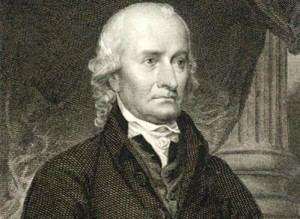Take Advantage of Free Life-Saving Lung Cancer Screening for Veterans

(Kim Norris, LCFA President) – Veterans who have selflessly served our country face a higher risk of developing lung cancer because of their exposure to environmental hazards such as asbestos and burn pits during their time in service and combat zones. Also, many Veterans enter occupations with a higher risk of exposure to hazardous chemicals and materials when they leave the military.
– Veterans who have selflessly served our country face a higher risk of developing lung cancer because of their exposure to environmental hazards such as asbestos and burn pits during their time in service and combat zones. Also, many Veterans enter occupations with a higher risk of exposure to hazardous chemicals and materials when they leave the military.
Fortunately, the Veterans Administration Health System, Medicare, and most private insurance companies now pay for annual lung cancer screening. Early detection and improved access to advanced diagnostic tools and treatments are essential to saving more Veterans’ lives. If caught early, the 5-year survival rate for lung cancer is approximately 60%, according to Lung Cancer Foundation of America (LCFA).
Jim Pantelas is one of those warriors, and he has been living with lung cancer for 18 years. He says that lung cancer screening is one of the easiest screenings you can get.
“It’s a whole lot easier than an endoscopy or colon cancer screening. It takes less than two minutes, and you’re done. It’s probably the least invasive of the screenings that I’m aware of.”
To call attention to the high rates of lung cancer among Veterans and to honor their service, LCFA has launched a new campaign called Breath of Honor: Lung Cancer Screening for Veterans during Lung Cancer Awareness Month this November.
The Breath of Honor campaign identifies seven lung cancer risk factors that Veterans should know. “Understanding the unique lung cancer risks for military personnel is crucial. Military warriors know the value of prior planning and early detection improves outcomes,” according to the LCFA. The risk factors are radon exposure, asbestos exposure, air pollution, family history of lung cancer, previous lung disease, smoking, and secondhand smoke, and for Veterans, you can add unique environmental risk factors.
“Nearly 8,000 Veterans are diagnosed and treated by the Veterans Administration for lung cancer each year, but that is only a fraction of the estimated 1.5M who are eligible for lung screening with annual low-dose chest CT scans,” says Dr. Drew Moghanaki, Chief of Thoracic Oncology in the UCLA Department of Radiation Oncology and Co-Director of the Greater Los Angeles VA Lung Precision Oncology Program. These scans are simple, painless, and effective; they have shown to be the most effective way to detect lung cancer at a time when it is most easily treated.”
Pantelas says getting the word out about screening as well as research is key to improving the lives of Veterans living with lung cancer.
“It is about the next guy. I mean, you don’t get people functioning in a war zone because they want to be there. You get them functioning in the war zone because they want to make sure somebody else doesn’t have to.” Jim Pantelas, a veteran and lung cancer patient.
Don’t wait—ask your doctor to get screened today! For more information go to ScreenAVet.org or LCFAmerica.org.
